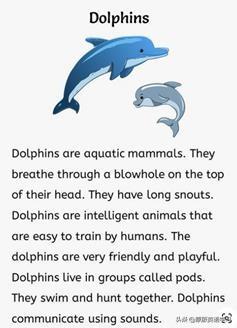摘要:海洋生态系统保护面临诸多挑战和策略。保护工作需要采取一系列措施来应对人类活动对海洋环境造成的破坏,包括减少污染、保护生物多样性、合理开发和利用海洋资源等。实现这些目标面临诸多困难,如技术、经济和社会方面的制约因素。需要全球合作和共同努力,采取更加有效的策略来确保海洋生态系统的健康和可持续发展。
Title: Preserving Our Blue Planet: The Importance of Ocean Ecosystem Protection
Sub-titles:
1、The State of Ocean Ecosystems
2、Environmental Challenges Facing the Ocean
3、Strategies for Ocean Protection
4、Frequently Asked Questions on Ocean Protection
Article Content:
Section 1: The State of Ocean Ecosystems
Our world is vast and diverse, with over 70% of the Earth's surface covered by the ocean. These vast bodies of water are not just repositories of water; they are complex ecosystems that support a wide range of marine life, from microscopic plankton to large whales. The ocean provides us with oxygen, food, and numerous other resources, making it crucial for our survival. However, the state of ocean ecosystems is increasingly under threat.
Section 2: Environmental Challenges Facing the Ocean
The ocean faces several environmental challenges, including climate change, pollution, overfishing, and habitat destruction. Climate change, caused by increasing greenhouse gas emissions, leads to rising sea temperatures and more frequent extreme weather events such as storms and floods. Pollution, primarily from industrial and agricultural waste, is contaminating the ocean and affecting marine life. Overfishing has led to the depletion of many fish stocks, while habitat destruction has resulted in the loss of vital habitats for marine species.
Section 3: Strategies for Ocean Protection
Fortunately, there are several strategies that can be employed to protect the ocean ecosystem. Firstly, we need to reduce our carbon footprint by switching to renewable energy sources and reducing greenhouse gas emissions. Secondly, we must combat pollution by implementing strict environmental regulations and waste management practices. Thirdly, sustainable fishing practices must be encouraged to ensure the long-term sustainability of fish stocks. Lastly, we need to protect and restore marine habitats by creating marine protected areas and undertaking habitat restoration projects.
Section 4: Frequently Asked Questions on Ocean Protection
Q: What is the biggest threat to ocean ecosystems?
A: The biggest threat to ocean ecosystems is climate change, caused by increasing greenhouse gas emissions.
Q: How can individuals help protect the ocean?
A: Individuals can help protect the ocean by reducing their carbon footprint, using sustainable products, and participating in beach clean-ups.
Q: What is a marine protected area?
A: A marine protected area is a designated area where ocean activities are restricted to protect marine habitats and species.
Q: What role does pollution play in harming the ocean?
A: Pollution, primarily from industrial and agricultural waste, contaminates the ocean and harms marine life. Oil spills, plastic litter, and other pollutants have devastating impacts on ocean ecosystems.
Q: What is being done to protect the ocean?
A: Several organizations and governments are undertaking initiatives to protect the ocean by implementing strict environmental regulations, promoting sustainable fishing practices, and creating marine protected areas.
In conclusion, the protection of ocean ecosystems is crucial for our survival. The ocean provides us with numerous resources and supports a wide range of marine life. It is our responsibility to ensure that these ecosystems are protected for future generations. By implementing effective strategies and engaging individuals, we can work together to preserve our blue planet.
This article provides an overview of the state of ocean ecosystems, the environmental challenges they face, strategies for protection, and frequently asked questions on ocean protection. It is hoped that this information will encourage individuals and organizations to take action in preserving our precious ocean ecosystems.


 浙ICP备14032885号-5
浙ICP备14032885号-5